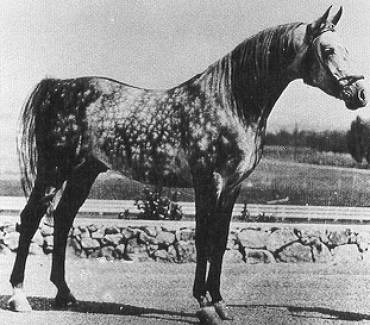Arabian Horse Breeding: Preserving Purity and Quality

Arabian horses are renowned worldwide for their beauty, endurance, and intelligence. Breeding these majestic animals requires a deep understanding of their history, genetics, and the meticulous practices that ensure the preservation of their purity and quality. This article explores the essential aspects of Arabian horse breeding, highlighting the importance of maintaining breed standards and the methods used by breeders to achieve excellence.
Introduction to Arabian Horses

Arabian horses are one of the oldest and most recognizable horse breeds, originating from the Arabian Peninsula. Known for their distinctive head shape, high tail carriage, and spirited yet gentle temperament, they have influenced many modern horse breeds.
History and Significance of Arabian Horse Breeding

The Arabian horse has a rich history dating back thousands of years. Traditionally bred by Bedouin tribes, these horses were prized for their stamina, speed, and loyalty. Preserving the lineage and purity of Arabian horses has been a priority for breeders to maintain these unique characteristics.
Key Traits of Arabian Horses
- Physical Characteristics: Compact body, arched neck, large expressive eyes, and a dished face.
- Temperament: Intelligent, alert, and willing to please.
- Endurance: Exceptional stamina suited for long-distance riding.
Breeding Practices to Preserve Purity
Maintaining the purity of Arabian horses involves strict pedigree documentation and selective breeding. Breeders often use:
- Studbooks: Official registries that record the lineage of purebred Arabian horses.
- Genetic Testing: To ensure the absence of hereditary diseases and confirm breed purity.
- Selective Mating: Choosing stallions and mares with desirable traits to enhance quality.
Quality Indicators in Arabian Horses
Quality in Arabian horses is judged by conformation, movement, and overall health. Breeders look for:
| Quality Aspect | Description |
|---|---|
| Conformation | Balanced proportions and structural soundness |
| Movement | Graceful, fluid, and efficient gait |
| Health | Strong immune system and vitality |
Challenges in Arabian Horse Breeding
Breeders face challenges such as genetic bottlenecks, inbreeding risks, and maintaining diversity while preserving purity. Responsible breeding programs aim to balance these factors.
FAQs about Arabian Horse Breeding
Q1: How do breeders ensure the purity of Arabian horses?
A1: Through meticulous pedigree tracking, genetic testing, and adherence to breed standards.
Q2: What makes Arabian horses different from other breeds?
A2: Their unique physical traits, endurance, and historical significance.
Q3: Can Arabian horses be crossbred?
A3: While crossbreeding occurs, purebred Arabian horses are preserved through controlled breeding to maintain breed integrity.
Conclusion
Arabian horse breeding is a specialized field dedicated to preserving the purity and quality of one of the world’s most treasured horse breeds. Through careful selection, documentation, and breeding practices, enthusiasts and professionals alike continue to uphold the legacy of the Arabian horse for future generations.
